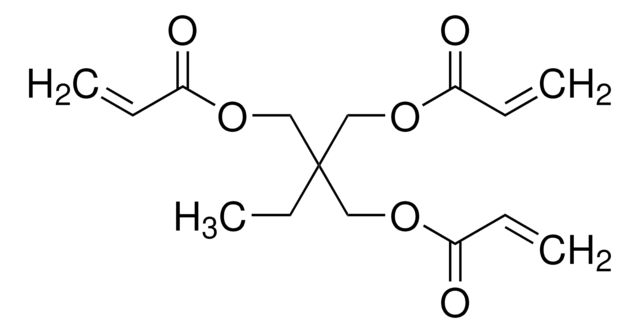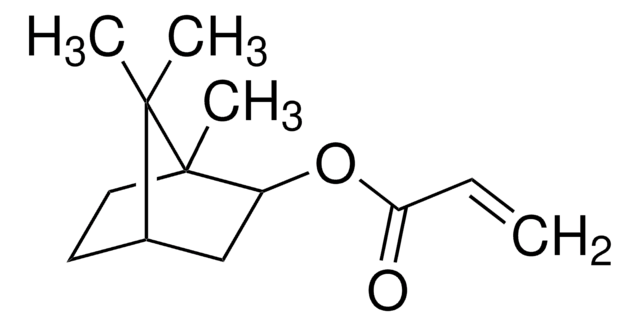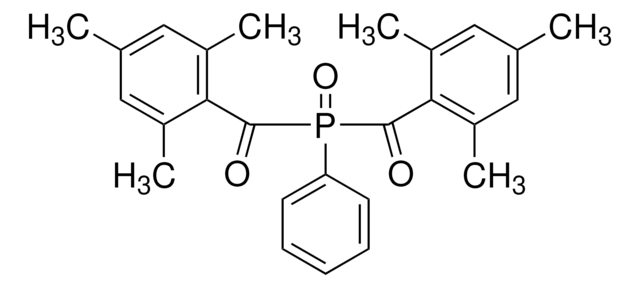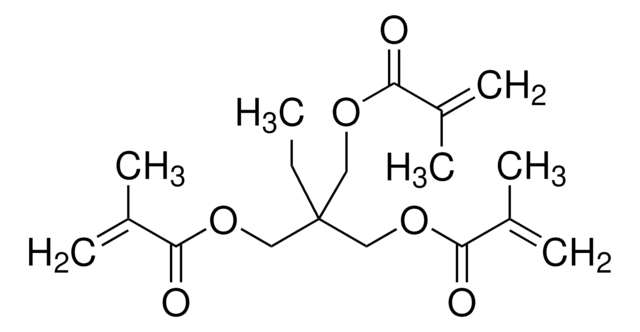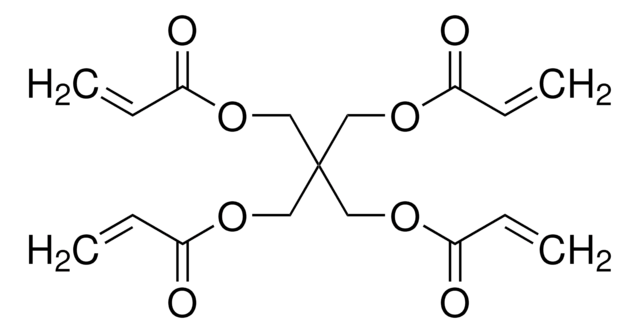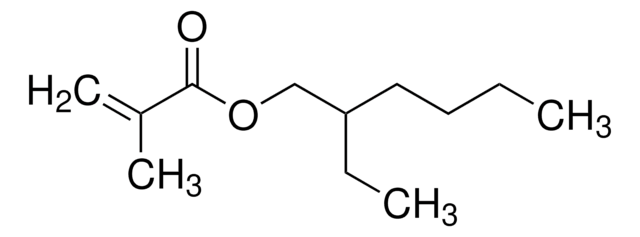411736
1,6-Hexanediol dimethacrylate
contains 75.0-125.0 hydroquinone as inhibitor
Synonyme(s) :
1,6-Hexamethylene dimethacrylate, 1,6-Hexanediyl dimethacrylate
About This Item
Produits recommandés
Pression de vapeur
0.02 mmHg ( 100 °C)
Pureté
≥90%
Forme
liquid
Contient
75.0-125.0 hydroquinone as inhibitor
Indice de réfraction
n20/D 1.458 (lit.)
Point d'ébullition
>315 °C (lit.)
Densité
0.995 g/mL at 25 °C (lit.)
Chaîne SMILES
CC(=C)C(=O)OCCCCCCOC(=O)C(C)=C
InChI
1S/C14H22O4/c1-11(2)13(15)17-9-7-5-6-8-10-18-14(16)12(3)4/h1,3,5-10H2,2,4H3
Clé InChI
SAPGBCWOQLHKKZ-UHFFFAOYSA-N
Vous recherchez des produits similaires ? Visite Guide de comparaison des produits
Catégories apparentées
Mention d'avertissement
Warning
Mentions de danger
Conseils de prudence
Classification des risques
Eye Irrit. 2 - Skin Irrit. 2 - STOT SE 3
Organes cibles
Respiratory system
Code de la classe de stockage
10 - Combustible liquids
Classe de danger pour l'eau (WGK)
WGK 2
Point d'éclair (°F)
228.2 °F - closed cup
Point d'éclair (°C)
109 °C - closed cup
Équipement de protection individuelle
Eyeshields, Gloves, type ABEK (EN14387) respirator filter
Faites votre choix parmi les versions les plus récentes :
Déjà en possession de ce produit ?
Retrouvez la documentation relative aux produits que vous avez récemment achetés dans la Bibliothèque de documents.
Les clients ont également consulté
Notre équipe de scientifiques dispose d'une expérience dans tous les secteurs de la recherche, notamment en sciences de la vie, science des matériaux, synthèse chimique, chromatographie, analyse et dans de nombreux autres domaines..
Contacter notre Service technique


